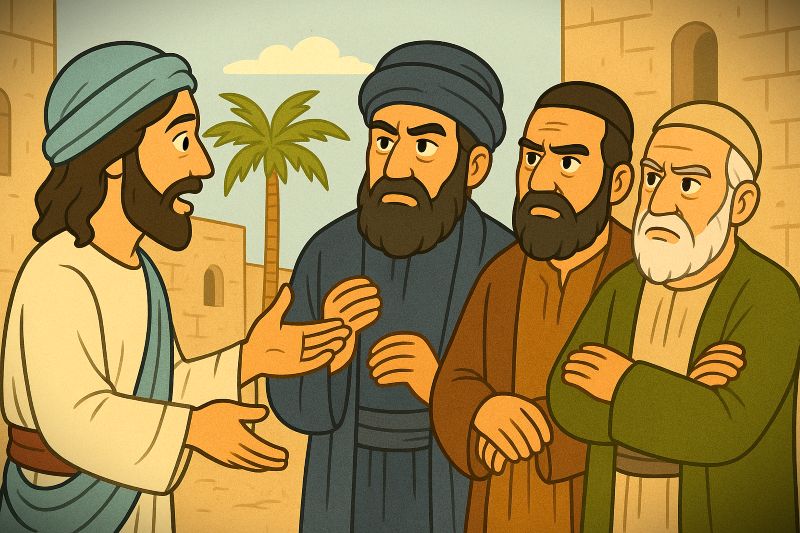Love is Free Choice

The younger son asks for his portion of the inheritance, intending to leave his father’s home and journey to a distant country. Though the father knows his son’s intentions and can foresee the likely outcome, he allows him to make his own choice.
11 Then He said: “A certain man had two sons. 12 And the younger of them said to his father, ‘Father, give me the portion of goods that falls to me.’ So he divided to them his livelihood. 13 And not many days after, the younger son gathered all together, journeyed to a far country, and there wasted his possessions with prodigal living.
Despite knowing the risks, the father honours his son’s request and gives him what is rightfully his. Similarly, God gives us life, freedom, and the privilege to make our own choices. We are free to decide how we live, use our talents, and whether to remain close to God or venture far from Him.
God respects our free will, even when He knows we are making poor decisions. He knows us intimately and understands that we will eventually seek what we are truly longing for—His love and presence—and return to Him.
The father in the parable allows his son to leave the security and comfort of home. He doesn’t argue or try to control his son’s decisions. As a loving father, he knows what will happen—the son will squander his inheritance and lose everything—but he also knows the importance of allowing his child the freedom to learn and grow.
The Father’s Sacrifice
Notice in verse 12 that the father divides his property between his two sons. This means the father is left with no property of his own—he gives everything to his children. The older son stays home, while the younger one leaves with his share. Many parables have layers of meaning, and in this one, the elder son can symbolize the Old Testament covenant, while the younger son represents the New Testament, and the freedom Jesus offers us to choose our own path and return to God.
In verse 13, the younger son sells his portion of the property and leaves with the money. He goes to a far-off country, where he wastes everything through reckless living. Jesus uses this story to show us that no matter how far we stray, God’s love for us never diminishes. The father in the parable represents our Heavenly Father, and we, as His children, are constantly faced with the choice of staying in His house or seeking independence away from Him.
At different points in life, we are like both sons. Sometimes we stay close to God, and other times we wander away, doing our own thing. This parable teaches us profound lessons about love, forgiveness, and the importance of returning to God.
Love Requires Free Choice
God allows us to make our own choices because love cannot exist without free will. If we had no choice, we would be like robots, blindly following commands without thought or understanding. But we are made in the image of God, and since God is love, free will is essential to our nature.
The further we stray from God, the less love we experience God’s love for us, its our choice to be in God’ house with Him or to hide or be far away from God’s love. God’s love never diminishes from us He is always loves us and is always waiting for us to spend time with Him, He want to spend all our time with us – that’s God’s free choice.
God’s choice is this deep, unconditional love for us.
In verse 14, after the younger son spends everything, a famine strikes the land. By verse 17, he has become so detached from his father’s household that he even works as a citizen of this foreign country.
This reflects our spiritual lives. When we become overly independent of God, we risk becoming "citizens of the world" rather than citizens of Heaven.
Jesus’ Choice
God’s gift of free will is a reflection of His love for us. Jesus Himself exercised this freedom by choosing to follow His Father’s plan, as the ultimate and only needed sacrifice for our sins.
If there is not free choice then there is no love, love is free choice, and Jesus chose the ultimate act of love for the world.
Jesus said on the cross ‘It is finished’ announcing to us and God that He has completed everything for us to have the direct relationship with God our Father.
We don’t have to do anything more Jesus has done everything for us.
Is now up to us to choose this free gift that God has given us.